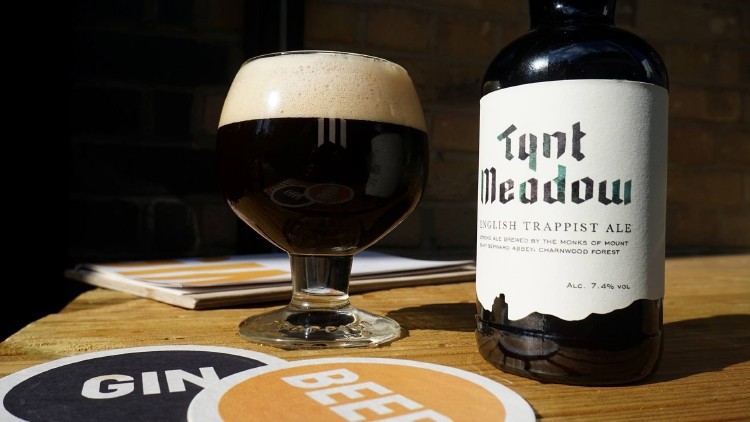Opinion: beer, religion and politics

Over the last couple of months I’ve witnessed both religion and politics mixing with the world of beer. Of the former I had first-hand experience and, frankly, it was heavenly. I was one of a small group (also including The Morning Advertiser’s James Beeson) invited to Mount St Bernard’s Abbey to try the UK’s first Trappist beer. It’s named Tynt Meadow, after the pasture where the monastery was originally founded more than 180 years ago. The monks who make it are Cistercians, who follow the rule of St Benedict. They dedicate their lives not just to prayer but to work. The brewery is part of how they earn their living, from the work of their own hands, according to their beliefs.
Five years of planning went into their venture, including a whole year of making the same beer (but with minor recipe changes) over and over until it was right. I can’t help thinking there are some secular brewers who could learn a lot from this approach! The monastic beer is wonderful. It’s rich and fruity but with elements of orange marmalade, aniseed and a touch of marzipan leading to a British hoppy finish. It’s an accomplished brew that deserves to become a classic.
So, combining beer and religion (on this occasion) has turned out well. But, to misquote Billy Bragg, mixing beer and politics I’m not sure what the use is. One of the things that got me thinking about this was Damien Smyth, the licensee who decided to change the name of his pub as a tribute to Donald Trump in celebration of his working visit to the UK. Although, if you read some of the coverage it seems the name-change and the £32-a-head welcome party might have been instigated with even more of a political agenda than it appeared – and not by Mr Smyth alone. Two breweries provided a counter measure in the shape of anti-Trump beers (not in response to the pub’s renaming I must point out). Faversham-based Boutilliers made Catsnatcher and London’s Affinity Brew Co called their’s July 13th. They were launched at a joint event in London, with plans to also hand out beers at the Stop Trump protest.
“[We] decided that we should do something about it, however small,” explained Ben Duckworth of Affinity. He added: “Never before has a foreign visitor caused so much outrage, anger, sheer disbelief as this divisive, bigoted shambles of a man. We believe[d] that the public response [would] be absolutely unprecedented, which is why we felt incapable of keeping quiet.”
When the personal is political
Naturally, the other combination of beer and politics that prompted my train of thought was the fall from grace of former chair of the All-Party Parliamentary Beer Group and junior minister, Andrew Griffiths, who was exposed for sending unsavoury, sexually explicit texts to two female bar workers and accused of inappropriate touching and bullying by members of his own political party. He apologised to his wife and family, and expressed regret for embarrassing the PM and the Government with his texts, but there was no apology for the way his behaviour reflects badly on the pub and beer industry for which he is an advocate.
As the anti-Trump beers illustrate, for many the personal is political – and it certainly spills over into the beer world. Considering the industry as a whole wants to increase sales, ignoring the issues swirling around it seems shortsighted. We still need to shake off the long shadow of sexism – especially if we want more women pubgoers and beer drinkers. Keeping quiet when someone who has represented the industry is found to be more male chauvinist than beer champion seems a step backward while trying to move forward.
Criticism of drinkers (and people within the industry) who express disappointment that a favourite independent brewery has been bought out or sold a huge stake to a multi-national brewing corporation is another instance on a similar theme. The critics overlook the spirit of the age. In these uncertain times, many people feel a need to express their beliefs in one of the only ways that seems to matter – through how and where they spend their money.
I’m not suggesting that nailing your colours to the mast is always the right thing to do. In any case, pubs and breweries must be absolutely sure of their customers if they don’t want it to backfire – but looking the other way or waiting for things to blow over seems to me just as risky.






